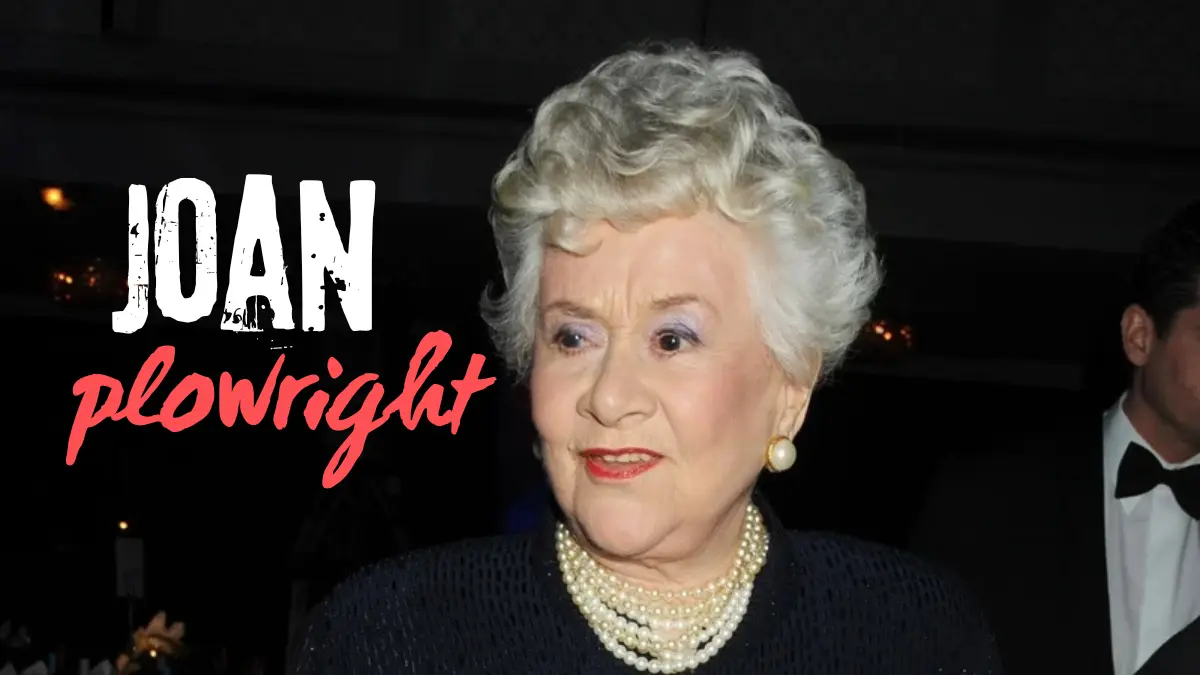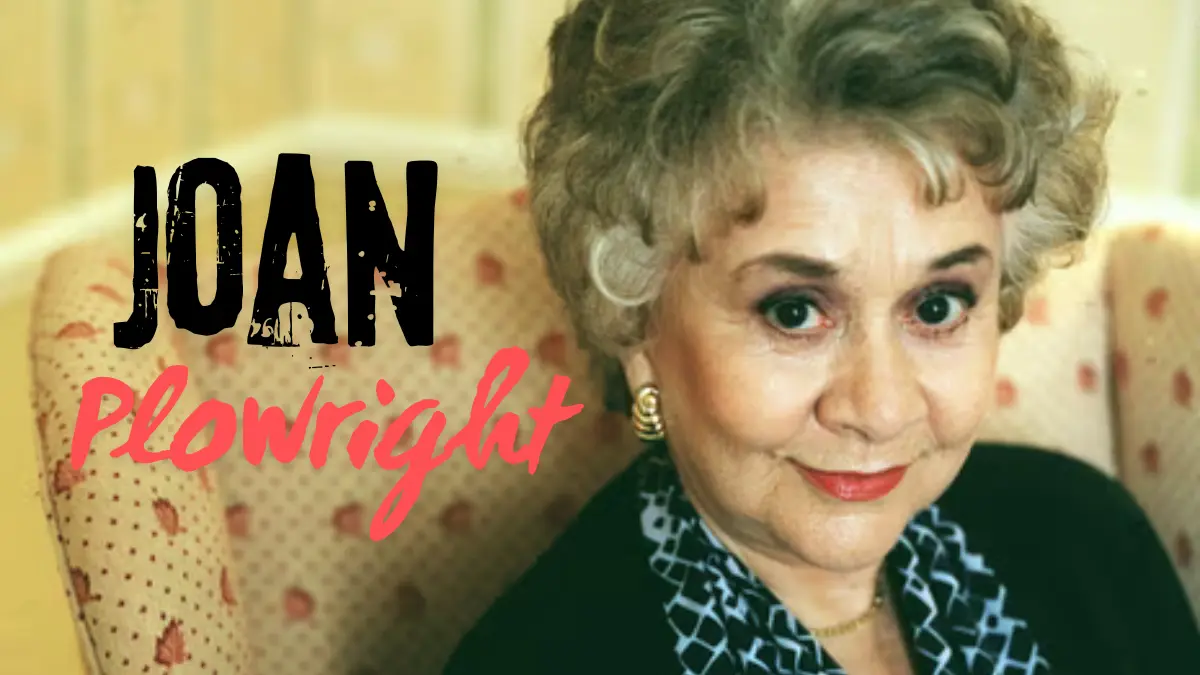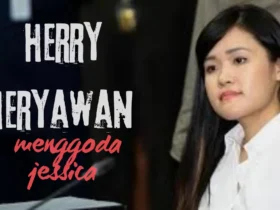Dame Joan Plowright, a celebrated English actress, is a towering figure in the world of theater and film. With a career spanning over six decades, Plowright has graced both the stage and screen with performances that resonate with depth, intelligence, and emotional nuance. Known for her versatility, she has portrayed a diverse array of characters, leaving an indelible mark on audiences worldwide.
Joan Plowright was born on October 28, 1929, in Brigg, Lincolnshire, England. She grew up in a family that encouraged her artistic inclinations, fostering her early interest in drama. Her passion for acting was evident from an early age, and it paved the way for her eventual rise to prominence in British theater and cinema. Her journey from a small-town girl to a Dame of the British Empire is a testament to her talent, dedication, and unyielding spirit.
Early Life and Education

Joan Ann Olivier, née Plowright, was the daughter of William Ernest Plowright and Daisy Margaret Burton. Her upbringing in a modest yet culturally rich household provided her with a strong foundation for her future career. Joan attended Scunthorpe Grammar School, where she participated in school plays and cultivated her love for acting.
Her formal training in drama began at the Bristol Old Vic Theatre School, one of the most prestigious institutions for aspiring actors. Here, she honed her craft, learning the intricacies of voice modulation, movement, and character analysis. The rigorous training at the Old Vic laid the groundwork for her exceptional performances on stage and screen.
Rise to Prominence in Theater
Joan Plowright’s entry into the professional theater world was marked by a series of compelling performances in repertory companies. Her breakthrough came in 1954 when she joined the English Stage Company at the Royal Court Theatre in London. The Royal Court was known for its avant-garde productions and commitment to new writing, making it the perfect platform for a young actress eager to make her mark.
Her role in John Osborne’s groundbreaking play, “The Entertainer,” in 1957 catapulted her to fame. Starring alongside Sir Laurence Olivier, Plowright’s portrayal of Jean Rice was met with critical acclaim. This performance not only established her as a leading actress but also marked the beginning of her association with Olivier, whom she would later marry.
Throughout her theatrical career, Joan Plowright demonstrated an extraordinary range, excelling in both classical and contemporary works. She appeared in numerous Shakespearean productions, including “As You Like It,” “Macbeth,” and “A Midsummer Night’s Dream,” showcasing her mastery of the Bard’s language and characters. Her ability to bring depth and humanity to her roles made her a favorite among audiences and critics alike.
Transition to Film and Television
While Joan Plowright initially made her name on the stage, she quickly transitioned to film and television, where she continued to showcase her exceptional talent. Her film debut came in 1956 with “Moby Dick,” directed by John Huston. Although her role was small, it was a stepping stone to more significant opportunities in the film industry.
Her performance in “The Entertainer” (1960), the film adaptation of John Osborne’s play, was a standout moment in her early film career. Reprising her role as Jean Rice, Plowright delivered a nuanced performance that captured the complexities of her character’s emotional journey. This role firmly established her as a talented actress capable of making a seamless transition from stage to screen.
In the decades that followed, Joan Plowright appeared in a wide range of films, including “Enchanted April,” “Stalin,” and “Tea with Mussolini.” Her performances were characterized by a rare combination of warmth, intelligence, and wit, earning her widespread acclaim and numerous awards. Notably, she received a Golden Globe Award for her role in “Enchanted April” and an Emmy Award for her work in “Stalin.”
Television also provided a platform for Joan Plowright to explore diverse roles and reach a broader audience. Her appearances in acclaimed television dramas and series further solidified her reputation as one of Britain’s finest actresses.
Marriage to Sir Laurence Olivier
One of the most significant aspects of Joan Plowright’s personal life was her marriage to Sir Laurence Olivier, widely regarded as one of the greatest actors of the 20th century. The couple married in 1961, following Olivier’s divorce from his second wife, actress Vivien Leigh.
Their marriage was a partnership of equals, both personally and professionally. Joan and Laurence often collaborated on stage and screen, sharing a mutual respect for each other’s talent and dedication to their craft. Together, they appeared in productions such as “The Entertainer,” “Three Sisters,” and “Long Day’s Journey Into Night.”
Despite the challenges of balancing their personal and professional lives, the couple’s relationship endured for nearly three decades until Olivier’s death in 1989. Joan’s unwavering support for her husband, particularly during his later years when he faced health issues, was a testament to her strength and devotion.
Awards and Recognition
Joan Plowright’s contributions to the arts have been recognized with numerous accolades and honors. In addition to her Golden Globe and Emmy Awards, she received several nominations for her performances in film, television, and theater. Her ability to imbue her characters with authenticity and emotional depth earned her critical acclaim and the admiration of her peers.
In 1970, Joan Plowright was appointed a Commander of the Order of the British Empire (CBE) in recognition of her services to drama. She was later elevated to Dame Commander (DBE) in 2004, a fitting acknowledgment of her remarkable career and contributions to the arts.
Legacy and Impact
Joan Plowright’s legacy extends far beyond her impressive body of work. She has been an inspiration to generations of actors, demonstrating the importance of dedication, versatility, and a deep understanding of one’s craft. Her commitment to theater, in particular, has helped preserve and promote the rich tradition of British drama.
In addition to her artistic achievements, Joan Plowright has been a champion for various charitable causes and an advocate for the arts. Her efforts to support young actors and promote arts education have left a lasting impact on the industry and community.
Later Years and Retirement
In her later years, Joan Plowright continued to work in film and television, taking on roles that allowed her to explore new facets of her talent. However, she gradually scaled back her acting commitments, focusing on her family and personal life.
In 2014, Joan announced her retirement from acting due to deteriorating eyesight, marking the end of an illustrious career. Despite stepping away from the spotlight, her contributions to the arts remain deeply cherished by fans and colleagues alike.
Conclusion
Dame Joan Plowright’s life and career are a testament to the enduring power of talent, perseverance, and passion. From her humble beginnings in Lincolnshire to becoming one of the most respected actresses of her generation, she has left an indelible mark on the world of theater and film. Her performances, both on stage and screen, continue to inspire and captivate audiences, ensuring her place in the pantheon of great artists. Joan Plowright’s legacy is not only one of artistic excellence but also of resilience and grace, qualities that will continue to resonate for generations to come.










